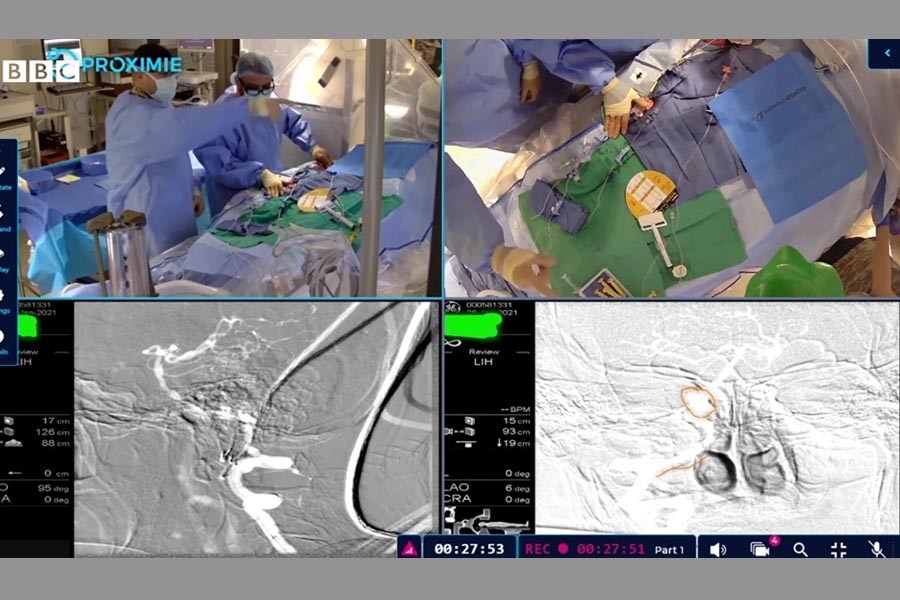
Published :
Updated :

A recent report by BBC revealed that around five billion people in the world do not have access to safe surgery which kills more people than HIV, malaria, and tuberculosis combined.
While robotic surgery has been available for some years, the technology has been incredibly expensive in many parts of the world, and its usage demands specialised training. But what if experts could simply call into a procedure from their phone or tablet?

Dr Nadine Hachach-Haram. Photo - BBC
The ongoing pandemic has shown how much our medical services rely on face-to-face interaction. Many procedures have been cancelled to prevent the spread of COVID -19, resulting in significant medical, mental, and economic ramifications for patients, hospitals, and societies.
As a result, some hospitals have used robots for practical, performing specialised surgeries while physicians remain at a safe distance, and even assist with patient communication.
Experts predict that the trend of machines altering medicine will continue. However, using robots is not economically feasible everywhere in the world.
That is where the revolutionary idea by Dr Nadine Hachach-Haram comes in. The 36-year-old US-based Lebanese surgeon and entrepreneur founded her company Proximie in 2016.
Proximie allows clinicians to virtually ‘scrub in’ and collaborate with each other from anywhere in the world using a combination of machine learning, artificial intelligence, and augmented reality.
Unlike others, Dr Nadine had been thinking about surgical issues long before Covid-19 came around. She saw firsthand the devastation that inequity in surgical treatment can cause as a youngster in war-torn Lebanon.
As a result, Nadine has developed technology that allows doctors to virtually scrub into any operating room anywhere in the world using only a tablet or computer. It has already proven to be beneficial to a very specific patient.

Surgeons using Proximie's 3D hand. Photo - BBC
On the official website of Proximie, Dr Nadine Hachach-Haram said, “A multi-sensory experience that was a catalyst for collaboration, and that could eventually digitise a surgeon’s footprint. We wanted to create the effect of a borderless operating room that could empower surgeons to remotely share knowledge that could ultimately reduce variation in care, and help save lives.”
Dr Nadine was awarded the British Empire Medal in 2018 for her pioneering achievements in surgery and medicine.
According to UK-based PR Newswire, Proximie has now performed tens of thousands of surgical encounters and has been deployed in over 500 hospitals in 50 countries.
rabbi.zahidur@gmail.com


 For all latest news, follow The Financial Express Google News channel.
For all latest news, follow The Financial Express Google News channel.